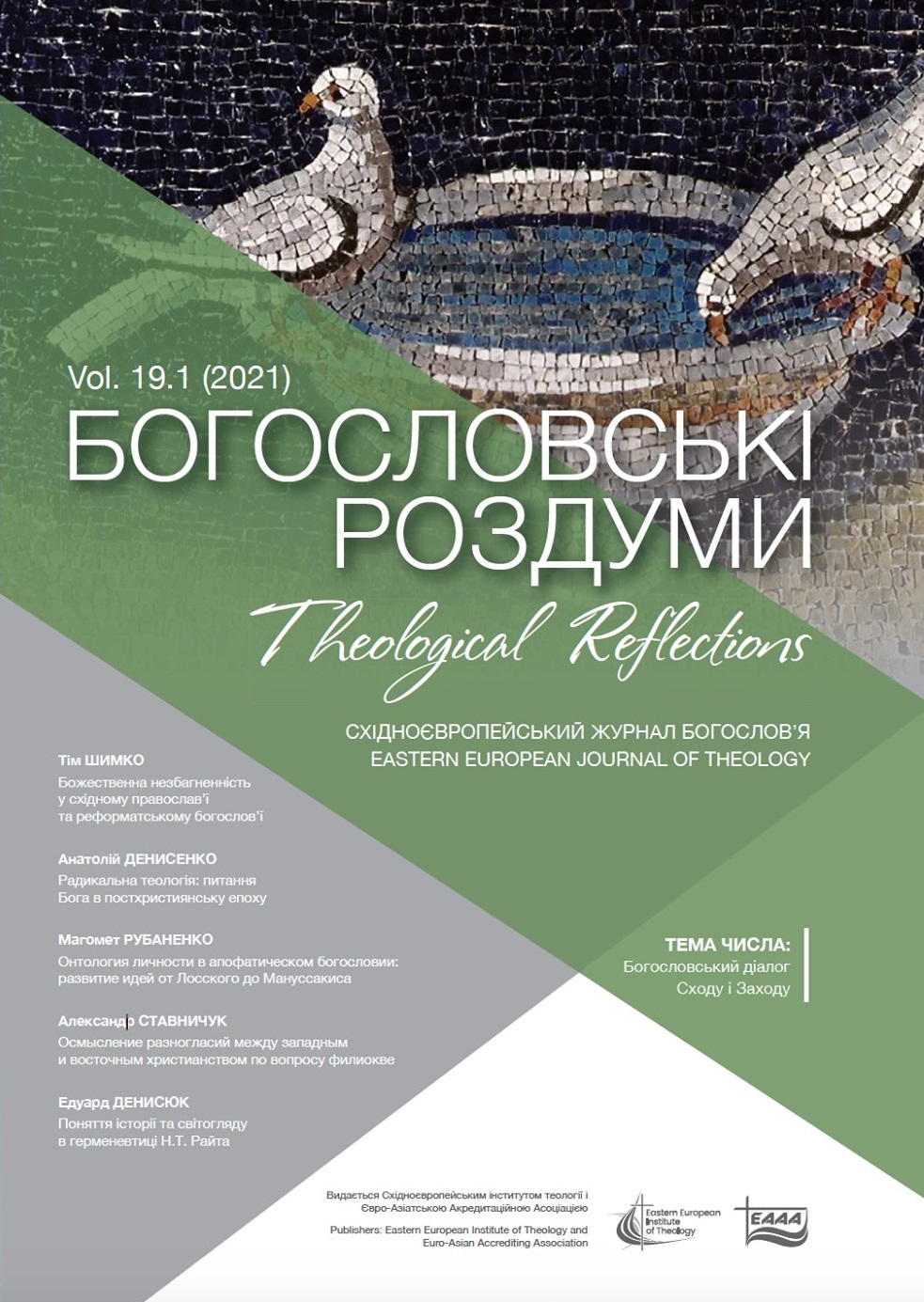Open Theism: A Critical Analysis
DOI:
https://doi.org/10.29357/2521-179X.2021.v19.1.21Keywords:
відкритий теїзм, божественне провидіння, аналітична філософія, герменевтика.Abstract
Kartaiev, Volodymyr. “Open Theism: A Critical Analysis.” The dissertation for the degree of candidate of philosophical sciences
– 09.00.14 (041 – Theology). This dissertation provides a critical analysis of the methodological, philosophical, and
hermeneutic aspects of open theism as a conceptual model of providence. Open theism is a revision of the classical model of God’s providence. It has been proven that despite significant modification, open theism can be called part of the theological family of Arminianism. At the same time, fundamental disagreements prevent the identification of open theism with process theology. It is shown that open theism is in essence a God-centered model. Divine life is social life. Open theism tries to correct, and if necessary, eliminate all elements of the providence model that contradicts love. It was discovered that of the three versions of open theism, only one falls within the confines of Christian orthodoxy. This is a version that denies the existence of the truth about future events (alethic openness) on the basis of causal, providential, and ontic openness of the future.
References
- Without a list of references
Additional Files
Published
How to Cite
Issue
Section
License
Copyright (c) 2021 Володимир Картаєв

This work is licensed under a Creative Commons Attribution-NonCommercial 4.0 International License.
All articles published in the Journal are distributed under a Creative Commons Attribution-NonCommercial 4.0 International License
By submitting an article for publication in Theological Reflections: Eastern European Journal of Theology the author grants the editors the right to publish the article and distribute it in electronic and print form.
The author reserves all copyrights and the right to use the materials of the article in whole or in part for educational purposes, to write his own dissertations, to prepare abstracts, conference reports, oral presentations, etc., as well as post electronic copies of articles (including the final electronic version downloaded from the journal’s official website) on non-commercial web-resources without the consent of the editorial board and founders.



